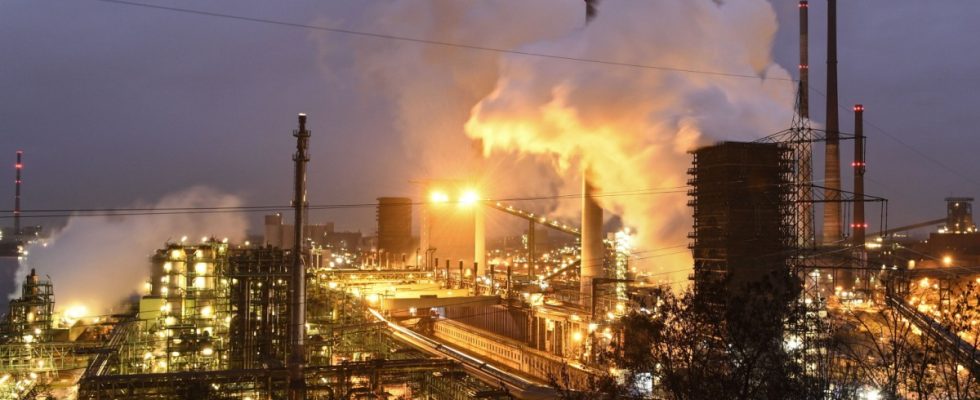In his speech, immediately after the welcome, the CEO made it clear that he had tough messages to announce: Thyssenkrupp, Miguel López says according to the manuscript, “cannot continue as before – many find it difficult to accept that.” And that creates clearly noticeable friction. The German-Spanish will speak these words on Friday in a congress hall in Bochum, at the general meeting of the troubled MDax member. 1,400 visitors are expected. Published the text the industrial group in advance.
The 58-year-old has only been running the Essen-based company, which employs almost 100,000 people worldwide, since June. The harsh diagnosis can therefore certainly be understood as criticism of his predecessors. There have been a few of these recently – López is the fourth CEO since 2018 after Heinrich Hiesinger, Guido Kerkhoff and Martina Merz. Shortly after taking office, the Frankfurt native prescribed a “performance program” for Thyssenkrupp in order to become more profitable and catch up with competitors.
In his speech, López openly describes that investors had lost trust: They told him that every new Thyssenkrupp boss had promised better times and then disappointed. “The belief in the innovative power of our company has suffered greatly. We have to fight back,” demands the former Siemens manager. He runs a general store. The group owns Europe’s largest steelworks; He also works as a mechanical engineer, automotive supplier, materials dealer and operator of naval shipyards. The listed subsidiary Nucera manufactures electrolysers, i.e. systems for producing climate-friendly hydrogen – a future market.
The problem is that this convenience store has been underperforming for years and performing worse than rivals. “This slows down our ability to invest and innovate,” says López. And it wears the team down: “Nobody enjoys running after them.”
Thyssenkrupp boss Miguel López says he misses the will to win in his managers.
(Photo: Rolf Vennenbernd/dpa)
The CEO praises the fact that the reputation among customers and the quality of the products are great. However, there is a lack of converting “technical strength into economic success”: “We often get in our own way; we lack commercial flair and an unbridled will to win.” This sounds like quite a slap-up for the current management. López’s arranged performance program is therefore dedicated, among other things, to improving the performance culture.
In the speech, the company leader emphasized once again that the initiative is primarily about increasing growth, for example through new business models. And not about cost reductions or even specific job reduction targets. Nevertheless, this change is difficult and stressful for the employees.
The figures for the financial year that ended in September show how necessary efforts are. The bottom line was a loss of a good two billion euros because López had to reduce the value of the steel division in the balance sheet. The boss is looking for a partner or buyer for this area – a request that his immediate predecessor Merz failed at. The manager is also looking for investors in the shipyard business, the world market leader for non-nuclear-powered submarines.
“Gigantic amounts of green energy” are needed
When it comes to steel, the company boss is negotiating with the Czech billionaire Daniel Křetínský. Its energy company EPH is to buy 50 percent of the shares in the division. The steel industry is currently investing in systems that produce pig iron not with coke and coal, but in a climate-friendly way with hydrogen and green electricity. That’s why smelting plants will need “gigantic amounts of green energy” in the future, as López said in his speech. Energy will cover up to half of the costs. The calculation is therefore that the partnership with an electricity supplier can benefit the steel division.
However, the poor steel economy “doesn’t make the negotiations any easier,” complains the manager. An additional problem is the pension obligations of over 2.6 billion euros in this business area. In the end, Thyssenkrupp may have to give Křetínský money so that he can take on the burden.
López also calls for further political help for the steel industry. Local corporations are investing in expensive, climate-friendly production processes, but are in competition on the global market with rivals who want to “aggressively” gain market share using existing cheaper methods, he says: “We have to be devilishly careful not to be left out as a company on this very complex transformation path to be thrown off the track.” It is therefore not certain that Thyssenkrupp will turn the corner.

